
Kod: 09098767
Nonparametric Inference of Utilites
Autor Matthias Herfert
Doctoral Thesis / Dissertation from the year 2006 in the subject Business economics - Marketing, Corporate Communication, CRM, Market Research, Social Media, grade: 1,0, Leipzig Graduate School of Management (Betriebswirtschaft), ... więcej
- Język:
 Angielski
Angielski - Oprawa: Miękka
- Liczba stron: 208
Wydawca: Diplom.de, 2006
- Więcej informacji o książce

186.95 €
Zwykle: 190.78 €
Oszczędzasz 3.83 €

Dostępna u dostawcy
Wysyłamy za 15 - 20 dni
Zobacz książki o podobnej tematyce
-

Seeking The Cool Side of the Pillow
16.93 € -

Caution
23.52 € -18 % -

Hollywood, the Dream Factory
17.95 € -

Raven
8.11 € -2 % -

Vejez
12.16 € -

Vom Gemeindevorsteher zum Kommunalmanager
33.87 € -9 %
Podaruj tę książkę jeszcze dziś
- Zamów książkę i wybierz "Wyślij jako prezent".
- Natychmiast wyślemy Ci bon podarunkowy, który możesz przekazać adresatowi prezentu.
- Książka zostanie wysłana do adresata, a Ty o nic nie musisz się martwić.
Więcej informacji o Nonparametric Inference of Utilites
Za ten zakup dostaniesz 466 punkty
 Opis
Opis
Doctoral Thesis / Dissertation from the year 2006 in the subject Business economics - Marketing, Corporate Communication, CRM, Market Research, Social Media, grade: 1,0, Leipzig Graduate School of Management (Betriebswirtschaft), language: English, abstract: Inhaltsangabe:Abstract:§In Chapter 2, Foundations , we provide a description of selected parts of theories which we believe are helpful to better understand the contribution of this thesis. We start with the presentation of several behavioral hypotheses in preference and utility theory. Next, we describe the basics of inferential statistics and Conjoint Analysis. Then, we describe probabilistic entropy, in addition to that a later established version of it, and its axiomatization as a general inference principle. We conclude Chapter 2 by presenting La Mura's decision-theoretic entropy, a version of entropy as an inference technique for expected utilities. La Mura had developed this connection between probabilistic entropy and expected utilities in his Ph.D. thesis.§Based on his work, the initial research objective for this dissertation had been to make his approach applicable to the inference of unique consumer utilities given some observed evidence, having in mind the vast amounts of data that nowadays are available to analysts but still not used very effectively, in order to jointly overcome the limitations of Conjoint Analysis as mentioned above.§In the following five chapters you will see that our research has instead resulted in a new method, namely Entropy Analysis, which is not based on expected utility functions but on ordinary utility functions. We close Chapter 2 with a conclusion for the following chapters.§In Chapter 3, Entropy Analysis , we derive the new method combining probabilistic cross-entropy and ordinary utility functions. We start by imposing a set of conditions on the inference method. Then, we suggest a normalization of utility functions such that they become formally a probability measure. Finally, we present and prove our main result.§In Chapter 4, Irrational Behavior , we present a solution for the problem of how to treat observed irrational behavior (see Definition 4.1) with Entropy Analysis. This is motivated by two reasons. First, we are hardly able to observe perfectly rational data in any survey or for any given set of transaction data. Therefore, any utility inference method that cannot deal with irrational data will not be meaningful for research or commercial applications.§Second, our method is at first sight formally structured in a way in which its application to irrational data would return an inferred utility function that is trivial, i.e. uniform (to be further explained at the beginning of the chapter).§Our solution to this problem involves the principled use of a specific version of our method which we call relative Entropy Analysis, the cross-entropy version of Entropy Analysis. We start the chapter by presenting our general technique. Next, we substantiate our technique by suggesting one widely applicable heuristic.§In Chapter 5, Consumer Choice Models , we develop three consumer choice models to apply our method to marketing problems. We start by developing a basic model for consumer choices in which we consider preferences that relate product characteristics or bundles of goods with money.§Next, we constrain this basic model by imposing conditions on preference relations which imply utilities that are quasi-linear in money. We do this because such utilities reduce technical complexity for utility inference problems and because we believe that quasi-linear utilities (which imply the absence of income effects) are sufficiently representative for all items that have relatively low prices. Our third choice model uses von Neumann-Morgenstern expected utilities to apply our method to inference of utilities over risky alternatives.§I...
 Szczegóły książki
Szczegóły książki
Kategoria Książki po angielsku Economics, finance, business & management Business & management Sales & marketing
186.95 €
- Pełny tytuł: Nonparametric Inference of Utilites
- Podtytuł: Entropy Analysis with Applications to Consumer Theory
- Autor: Matthias Herfert
- Język:
 Angielski
Angielski - Oprawa: Miękka
- Liczba stron: 208
- EAN: 9783836600101
- ISBN: 3836600102
- ID: 09098767
- Wydawca: Diplom.de
- Waga: 277 g
- Wymiary: 210 × 148 × 12 mm
- Data wydania: 05. December 2006
Ulubione w innej kategorii
-

Zig Ziglar's Secrets of Closing the Sale
18.35 € -13 % -

Building a StoryBrand
13.28 € -21 % -

Cashvertising
16.02 € -16 % -
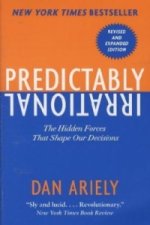
Predictably Irrational, Revised
7.50 € -25 % -

Spin Selling
26.87 € -29 % -

Positioning: The Battle for Your Mind
16.32 € -28 % -

The Challenger Sale
16.73 € -24 % -

Luxury Strategy
47.67 € -

1-Page Marketing Plan
14.90 € -22 % -
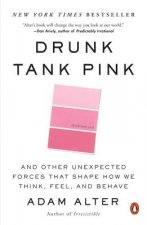
Drunk Tank Pink
15.10 € -19 % -

Sell It Like Serhant
10.95 € -26 % -

Be Our Guest (10th Anniversary Updated Edition)
22.81 € -12 % -

They Ask, You Answer
22.10 € -15 % -

My Life in Advertising and Scientific Advertising
13.18 € -24 % -

Crisis Communication and Crisis Management
59.54 € -10 % -
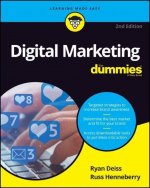
Digital Marketing For Dummies, 2nd Edition
24.84 € -31 % -

Sell or Be Sold
19.37 € -25 % -

How to Master the Art of Selling
16.83 € -27 % -

How Brands Grow
36.61 € -

Contagious: Why Things Catch on
17.03 € -16 % -
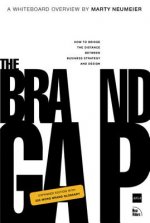
Brand Gap, The
29.31 € -
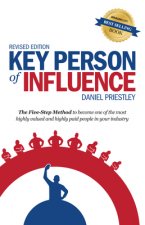
Key Person of Influence
10.34 € -28 % -

Scientific Advertising
16.83 € -2 % -

Trust Me I'm Lying
11.35 € -28 % -

Powerful Phrases for Effective Customer Service: Over 700 Ready-to- Use Phrases and Scripts That Really Get Results
15.71 € -25 % -

80/20 Sales and Marketing
19.77 € -24 % -
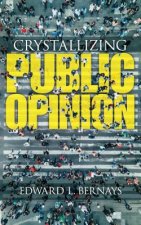
Crystallizing Public Opinion
11.96 € -15 % -
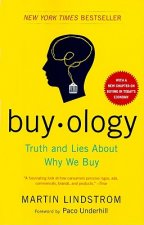
Buyology
16.32 € -10 % -

Brand Flip, The
33.26 € -

D&AD. The Copy Book
20.79 € -

Scientific Advertising
8 € -4 % -
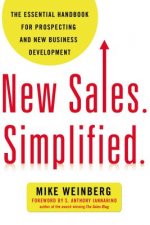
New Sales. Simplified.
21.09 € -12 % -

Guerilla Marketing
14.09 € -18 % -

It's Not How Good You Are, It's How Good You Want to Be
11.35 € -8 % -

Ogilvy on Advertising
16.53 € -22 % -
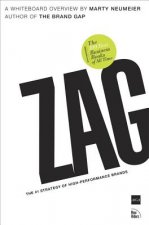
ZAG
31.84 € -6 % -

Public Relations
16.53 € -21 % -

Neuro Design
33.26 € -1 % -

Professional Services Marketing
23.42 € -28 % -
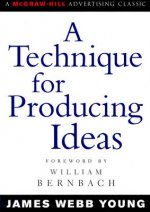
A Technique for Producing Ideas
8.31 € -28 % -

All Marketers are Liars
16.63 € -13 % -
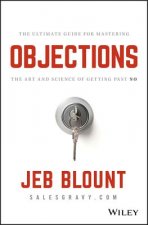
Objections - The Ultimate Guide for Mastering The Art and Science of Getting Past No
21.29 € -29 % -

Selling 101
11.35 € -28 % -

Principles of Marketing
79.22 € -
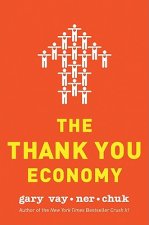
Thank You Economy
23.73 € -

Eating the Big Fish - How Challenger Brands Can Compete Against Brand Leaders 2e
27.18 € -26 % -
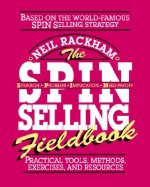
SPIN Selling Fieldbook: Practical Tools, Methods, Exercises and Resources
25.05 € -23 % -
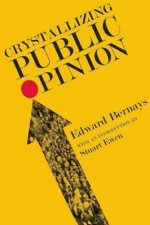
Crystallizing Public Opinion
13.89 € -19 % -
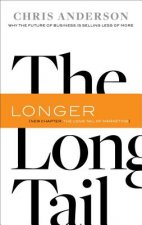
Long Tail
17.03 € -19 %
Osobní odběr Bratislava a 2642 dalších
Copyright ©2008-24 najlacnejsie-knihy.sk Wszelkie prawa zastrzeżonePrywatnieCookies


 Vrácení do měsíce
Vrácení do měsíce Zdarma od 49.99 €
Zdarma od 49.99 € 02/210 210 99 (8-15.30h)
02/210 210 99 (8-15.30h)